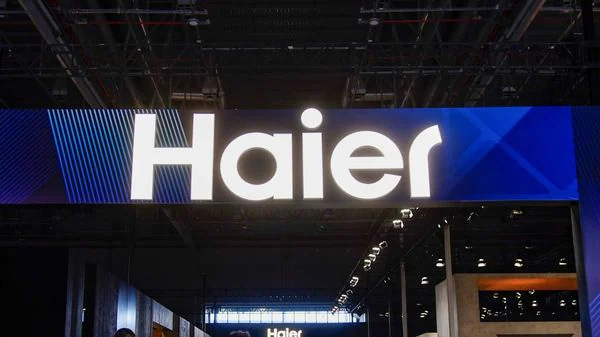Chinese companies operating in India have been facing heightened regulatory scrutiny in recent years, particularly after the 2020 border skirmishes that strained bilateral relations. One of the most effective strategies for these companies to “slide” past the hurdles posed by regulatory challenges is to seek local partnerships—a route that has already proven beneficial for companies like MG Motors through its tie-up with the JSW Group.
Following this playbook, Chinese electronics giant Haier, the third-largest appliance company in India after LG and Samsung, is now pursuing a similar strategy.
Haier since entering the Indian market in 2003, has sought ways to expand its presence, and now the company is looking to dilute up to 49% of its Indian business to a local partner. This move is being guided by Citi, Haier’s global advisor, which is reaching out to Indian companies that don’t operate in competing sectors.
India’s regulatory scrutiny of Chinese firms intensified after the bilateral fallout of June 2020, leading to the introduction of Press Note 3 which stipulates that companies from nations sharing a land border with India, such as China, need government approval before making investments.
Thus, halting the automatic investment route and significantly slowed the pace of Chinese investments in India, although some proposals have recently been cleared.
For Haier, the goal is to form a joint control mechanism where the Indian partner becomes the largest shareholder and management shifts locally—a strategic move that may also pave the way for a local listing in the future. Haier is optimistic about securing a premium deal, using LG Electronics India’s upcoming $13 billion IPO valuation as a benchmark.
However, market expectations for Haier’s Indian arm are more conservative, hovering around $2-2.2 billion, with the lower figure largely attributed to its Chinese ownership.
“Haier is looking for a strategic Indian partner who isn’t in the durables business but can help them navigate India’s bureaucratic processes and political corridors,” says an industry insider. “The focus isn’t on financial investment but rather on getting approvals faster and scaling operations. Partnering with a group that can open doors in the political sphere is key.”
The company has ruled out potential partners such as Tata, Godrej, and Reliance due to conflicts of interest in the durable goods sector. Instead, it is eyeing firms that can help shield its operations from geopolitical tensions and ensure that its local workforce—including Chinese employees—are protected.
Haier’s competition in the Indian market is fierce.
It goes up against giants like LG, Samsung, Whirlpool, Godrej Appliances, and Voltas Beko while LG India dominates the appliances segment by sales, Haier is steadily climbing, with its Indian revenue growing 17% year-on-year to reach ₹6,350 crore in 2023. The company turned a profit last year, posting a net income of ₹154 crore, a notable improvement from the ₹63 crore loss in 2022. Analysts predict Haier will generate an EBITDA of ₹600 crore in FY24.
However, despite these strong financials, Haier’s parent company still faces delays. In 2023, the company sought approval from India’s Department for Promotion of Industry and Internal Trade (DPIIT) to infuse ₹1,000 crore of capital through Haier Singapore Investment Holding but government approval for this move has yet to materialize.
In India, consumer appliance stocks such as Havells, Whirlpool, and Voltas trade at high multiples, reflecting strong market growth. Indian firms typically trade at three times their revenue, with price-to-earnings multiples of 50-60 times. This high growth potential is one of the reasons why companies like Haier are keen on deepening their presence.

Indian Business Giants Diversify
Indian conglomerates like Ahmedabad-based Torrent Group, Dabur, and Sajjan Jindal’s JSW Group are rapidly expanding their portfolios, exploring unique investment opportunities across sectors such as financial services, retail, real estate, automobiles, sports, and entertainment.
Torrent Group, for instance, made a significant bid for Reliance Capital and is currently eyeing ownership of the Gujarat Titans IPL cricket franchise. Similarly, the Burman family of Dabur is locked in a takeover battle at Religare and had previously made a strong pitch to acquire Coca-Cola’s bottling operations in India.
Meanwhile, India’s billionaire class, including the likes of Sunil Mittal, Sunil and Pawan Munjal, Gautam Adani, Uday Kotak, Azim Premji, and Infosys chairman NR Narayana Murthy, are utilizing their family offices to make bold investments. These family offices are increasingly being sounded out for potential partnerships with Chinese firms like Haier, with early discussions already underway.
Haier, which has significant growth ambitions in India, is actively exploring local partnerships. However, the geopolitical environment remains challenging, particularly for private equity funds with US limited partners (LPs), who may be hesitant to invest in a Chinese company due to regulatory constraints.
Despite these hurdles, Haier’s commitment to India remains strong. The company has ambitious investment plans, including the expansion of its manufacturing plants in Greater Noida and Pune, and the establishment of a third greenfield facility in southern India. It is currently seeking land in Andhra Pradesh and Tamil Nadu to bring this project to life. With its current pace of growth, the capacities at its Pune and Greater Noida plants are expected to reach saturation in the next two to three years, according to industry insiders.
As these Indian conglomerates and Haier move forward, strategic partnerships may become the key to unlocking the next wave of growth for both parties, creating new synergies in one of the world’s most dynamic markets.
Snapshot
The key lesson for Chinese companies facing similar regulatory challenges in India is clear-find the right local partner.
It’s not just about financial backing; it’s about having a partner who understands the local regulatory and political layout; hence, Haier’s approach is indicative of the importance of local alliances that go beyond capital, aiming instead to build a sustainable and profitable business in one of the world’s fastest-growing markets.









